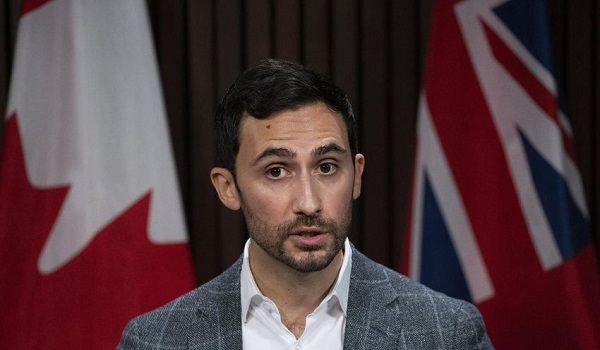10,000 Canadians’ responses on how to improve healthcare
Amid a nationwide health-care crisis, a group of Toronto-led researchers has criss-crossed the country to hear how Canadians would fix primary care, the front door of the health system.
The OurCare project — the largest initiative of its kind — surveyed close to 10,000 people from across Canada to see whether they had access to a family doctor or nurse practitioner and ask what matters most when reforming primary care.
The researchers met with more than 150 people in five provinces for in-depth discussions on the challenges facing primary care, each panel coming up with patient-led solutions.
They also heard from close to 200 participants from communities typically underserved by primary care, including First Nation, Inuit and Métis peoples, immigrants and other newcomers and people with disabilities, who shared their ideas for a health system that meets everyone’s needs.
“In total, it was about 10,000 hours spent engaging with the public on the future of primary care,” said Dr. Tara Kiran, national lead for OurCare and a family doctor in Toronto. “We wanted to bring a fresh perspective to the issues and to centre the needs and values of the people that the health-care system is designed to serve.”
She said the final OurCare report, released Monday, is the culmination of the 16-month project and provides governments and policymakers with a vision of what the public wants and deserves from primary care.
She said a key finding is that people want timely and ongoing access to a family doctor or nurse practitioner — not just for themselves and their families but also for others in the community.
The OurCare report recommends expanding access to team-based primary care, meaning patients have access to an interdisciplinary group of health professionals, including social workers, pharmacists and dietitians, along with family doctors and nurse practitioners. Evidence suggests such teams improve patient outcomes.
Health-care leaders and medical organizations have been calling for targeted reforms to primary care amid a worsening family doctor shortage in Canada. They say such reforms will improve patient outcomes and ease the pressures on an overwhelmed health system.
Data from the OurCare survey suggests about one in five Canadian adults don’t have regular access to a family doctor or nurse practitioner. In Ontario, about 2.3 million people don’t have a family doctor — a number that is expected to reach 4.4 million by 2026, according to the Ontario College of Family Physicians.
In addition to expanding team-based care, OurCare recommendations for primary care reform include, among others:
• Allow patients to access their electronic medical records;
• Expand and integrate virtual care with in-person care to ensure people can easily and equitably access health care, especially in rural and remote communities;
• Include other aspects of health care, such as dental care and mental health care, within primary care to support overall well-being; and
• Ensure primary care meets everyone’s needs, meaning all health spaces are safe and accessible and that care addresses the social determinants of health, such as unsafe housing and food insecurity.
The report also sets out the OurCare standard to help the public, governments and health leaders assess how primary care is measuring up to the goals of having an equitable and high-quality system, Kiran said.
“We need a way to evaluate new investments and reforms,” said Kiran, a scientist with the MAP Centre for Urban Health Solutions at St. Michael’s Hospital, a part of Unity Health Toronto. “If we’re moving forward in a new direction, are we moving forward in a direction that is consistent with what patients and the public want?”
Sandra Epp, a single mother of two teenagers, said she participated in OurCare’s Manitoba panel to push for improvements in the system.
While Epp, who lives in Selkirk, about 40 kilometres north of Winnipeg, has access to primary care, she said it hasn’t been enough to navigate the significant health challenges of her two children and those of her elderly parents.
Epp said it has been difficult to have timely and comprehensive care for her younger child, who identifies as transgender, and her elder child, recently diagnosed with fibromyalgia. In the last few years, her children’s mental health has declined, she said.
“The stress and struggle to get adequate care has been a nightmare,” she said. “I told my kids there’s no point in us going through this nightmare if we don’t do something about it and try to make it different or better.”
Inconsistent access to primary care, especially in rural and remote parts of the province, was repeatedly brought up in the Manitoba panel, said Epp.
She said the OurCare participants were deliberate in their emphasis on the word ‘everyone’ in their recommendations to expand primary care.
“Regardless of what your station in life is, you’re a part of that everyone. That means crossing racial boundaries, crossing economic boundaries, crossing social boundaries.”
Kiran said she anticipates governments and health leaders will use the OurCare findings and standards as they invest and improve primary care. While some recommendations, such as building up the primary care workforce and substantially boosting funding levels, will take time, Kiran said others can be acted on quickly, including the push for accountability and transparency.
“People should be able to see how the primary care system is performing regionally, provincially and nationally, and see how new investments in money or changes to the system are affecting outcomes,” said Kiran. She noted that currently only New Brunswick provides transparent reporting on its primary care system.
People who want to evaluate their own primary care experience can take a quiz on the OurCare site. Kiran said if they find their care falls short, they are encouraged to write a letter to their elected representatives.
“OurCare is directed toward policymakers but also to patients and the public to help them understand there are solutions (to the primary care crisis),” she said. “We hope it will help them find a voice to be able to advocate on behalf of themselves and their families and their communities.”
This article was reported by The Star















